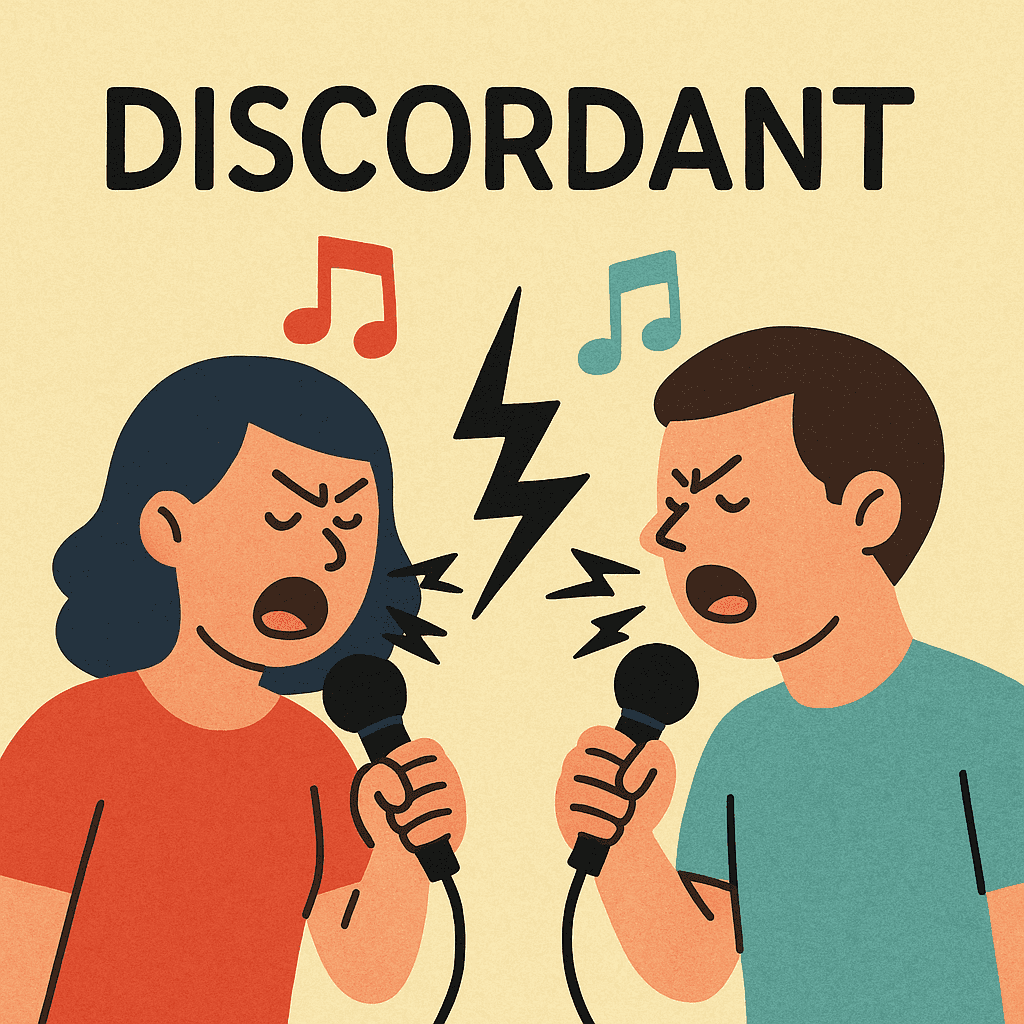Meaning
- Discordant (adjective) means not in harmony, disagreeing, or clashing.
- It can refer to sounds that are harsh and unpleasant, or to ideas, opinions, and relationships that are in conflict.
Grammar and Usage
-
Part of speech: Adjective
-
Used to describe sounds, voices, or opinions that do not match or are unpleasant together.
-
Common sentence structures:
- "discordant + noun" (e.g., discordant voices, discordant notes, discordant opinions)
- "be discordant with" (e.g., His actions were discordant with his words.)
Common Phrases
- discordant voices – people speaking or arguing in disagreement
- discordant note – an unpleasant or jarring sound; also used figuratively for disagreement
- discordant opinions – views that strongly disagree
Collocations
- discordant sounds
- discordant views
- discordant elements
- discordant relationship
- discordant music
Examples
- The orchestra produced a discordant sound when the musicians were not in sync.
- Their discordant opinions made it difficult to reach an agreement.
- A discordant note in the otherwise peaceful meeting sparked a heated debate.
- The painting’s bright colors seemed discordant with the gloomy atmosphere of the room.
- His behavior was discordant with the values he claimed to support.
- The couple often had discordant views on financial matters.
- The meeting ended on a discordant note, with no solution in sight.
Synonyms or Related
- conflicting
- dissonant
- clashing
- jarring
- incompatible
- disagreeing

